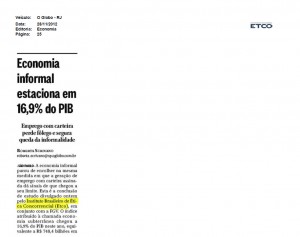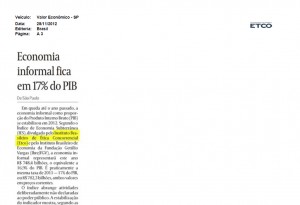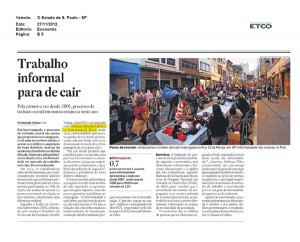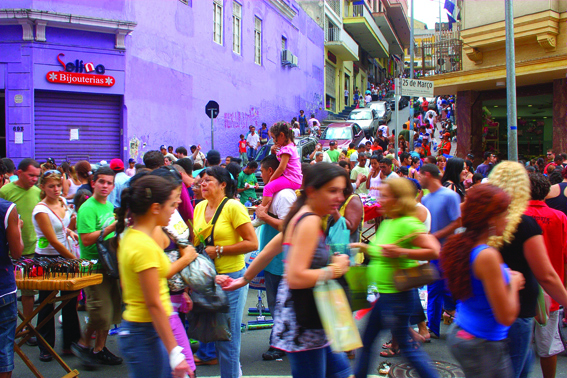
After five years in decline, the Underground Economy Index, released by the ETCO in conjunction with the Brazilian Institute of Economics of the Getúlio Vargas Foundation (IBRE / FGV), stop falling and remains at around 17%. According to the researchers, this is a sign that the formalization process has reached its institutional limit.
The estimate of 16,9% in relation to GDP for 2012 represents a difference considered residual compared to 17% in 2011 and confirms the trend, already pointed out by IBRE / FGV researchers in June, that one of the main responsible parties reached its limit by the successive falls of IES: the growth of formal employment.
With the exception of 2009, an atypical year for the economy due to the global crisis, since 2007 the Brazilian HEI had declined by 0,7 percentage points per year, going from 20,2% in 2006 to 17% in 2011. “In large part , this drop is explained by the significant increase in the formal labor market observed in recent years and which is a consequence of the good performance of the Brazilian economy in the period, even during the 2009 crisis ”, analyzes the researcher at IBRE / FGV, responsible for preparing from IES, Fernando de Holanda Barbosa Filho.
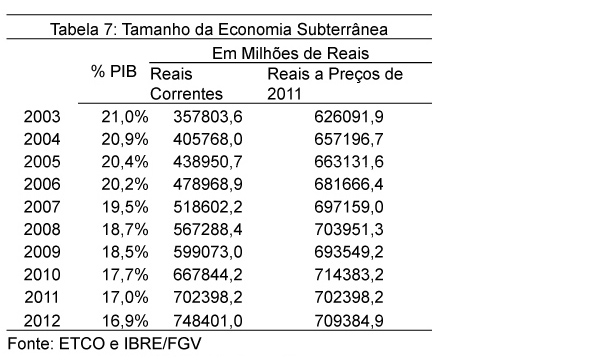
The Netherlands believes, however, that this growth in the formal labor market has reached its limit and points to two major factors as an obstacle to the continuation of this evolution. One of them, well known, is the rigidity of labor laws, which, according to him, "tie the economy". The other, less obvious, but with a lot of impact on reducing informality, is the level of education of Brazilians. “According to Pnad, between 2002 and 2011, informality in the labor market dropped 10 percentage points, from 43% to 32% of the total employed population. The increase in the 22 million people who were educated between 2001 and 2011, accounts for 64% of this drop ”, emphasizes the researcher. But the still low level of qualification acts as a limiting factor in the informality relationship.
For Roberto Abdenur, chief executive of ETCO, “these numbers bring new and rich possibilities with regard to the improvement of the labor market in the country and the consequent reduction of informality” in the economy. “If, on the one hand, softening rigid labor laws is an increasingly essential mission, investing in education is much more than a goal, it is an obligation for a nation that claims to be strong and positioned among the main economies in the world” , highlights Abdenur.


